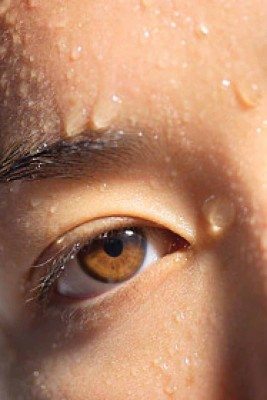It’s that time of year when there’s plenty of sun and temperatures are at their peak. While it’s ideal weather for vacations, barbecues and beach getaways, it’s also when cases of heatstroke dramatically increase. Throughout the warm summer months, it’s important for all of us to take proactive steps to prevent heatstroke as it can happen at any age. In some cases, an ounce of prevention can even save a life.
What is Heatstroke?
Caused by the body overheating, heatstroke—also called hyperthermia—is typically a result of prolonged exposure to or physical exertion in high temperatures. Symptoms can include:
• Dizziness
• Disorientation
• Agitation
• Confusion
• Sluggishness
• Seizure
• Loss of consciousness
• Rapid heartbeat
• Hallucinations
The most serious form of heatstroke occurs when body temperature rises to 104 degrees or higher. Heatstroke is a medical emergency that can damage the brain, heart, kidneys and muscles. In some cases, it can lead to serious complications and even death.
Protecting Yourself
Anyone can develop heatstroke. However, there are certain factors that can put you at greater risk. These include:
• Age – Both the very young and adults over 65 have less ability to cope with changes in body temperature.
• Exertion in hot weather – Exercise and other types of physical exertion in hot weather, such as yard work, can lead to a heatstroke.
• Sudden exposure to hot weather – You’re more susceptible to heat-related illness if you’re suddenly exposed to high temperatures, such as during an early summer heatwave or when traveling to a hotter climate.
• Certain medications – Some medications can affect your ability to stay hydrated and respond to high temperatures. These include vasoconstrictors, blood pressure medication, beta blockers, diuretics and antidepressants.
• Health conditions – Chronic illnesses, such as heart or lung disease and obesity, can increase your risk of heatstroke.
Children’s Health Risk
Sadly, one of the biggest summer dangers for children is heatstroke. On average, every eight days a child dies from heatstroke in a vehicle (source: Safe Kids). Hundreds more children are rescued. Many are surprised to learn that heatstroke is the leading cause of non-crash, vehicle-related deaths for children.
There are many circumstances that contribute to this increasingly common children’s health risk. Over 50 percent of the time, a child is “forgotten” by a caregiver. When you consider that the temperature in a car can rise more than 20 degrees in just 10 minutes, time is critical when a child is left in a hot car. Parents and caregivers must actively protect children from heatstroke, and one of the best ways to do this is to remember ACT.
A – Avoid heatstroke-related injury and death by never leaving a child alone in a car, not for one minute. And, make sure to keep your car locked when you’re not in it so kids don’t get in on their own.
C – Create reminders by putting something in the back of your car next to your child, such as a purse or a cell phone. This is particularly important if you’re not following your normal routine.
T – Take action if you see a child alone in a car. Call 911. Emergency personnel are trained to respond to these life-threatening situations.
Preventing Heatstroke
Fortunately, there are many ways to reduce your chance of developing heatstroke this summer. Smart strategies to stay cool include:
• Wear loose-fitting, lightweight clothing that enables your body to cool properly.
• Protect against sunburn by using an SPF, and wearing a hat and sunglasses.
• Stay hydrated by drinking plenty of fluids.
• Take precautions with medications.
• Avoid direct sunlight during the hottest times of the day.
Rosemarie Ennis is assistant vice president, community health education, office of community and public health at Northwell Health.




















